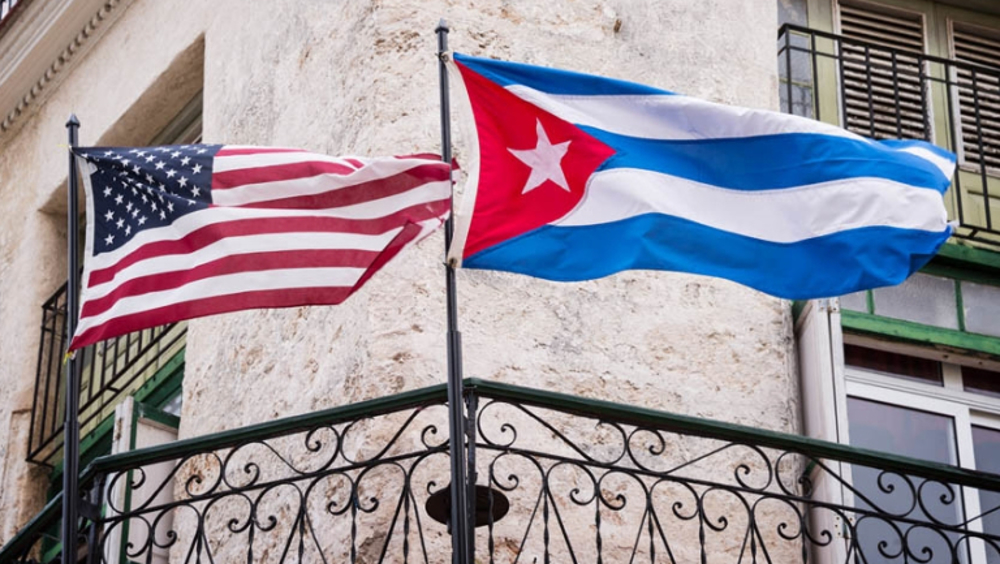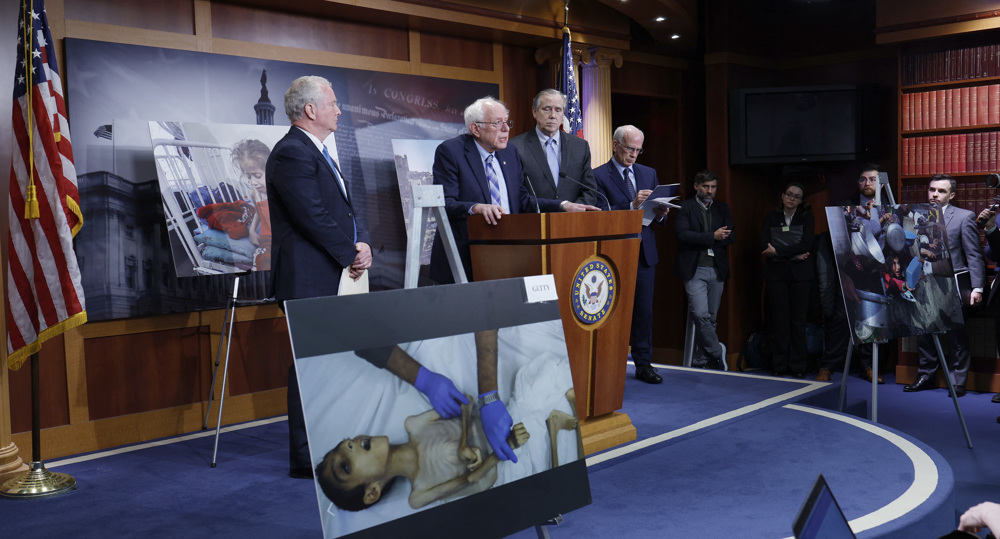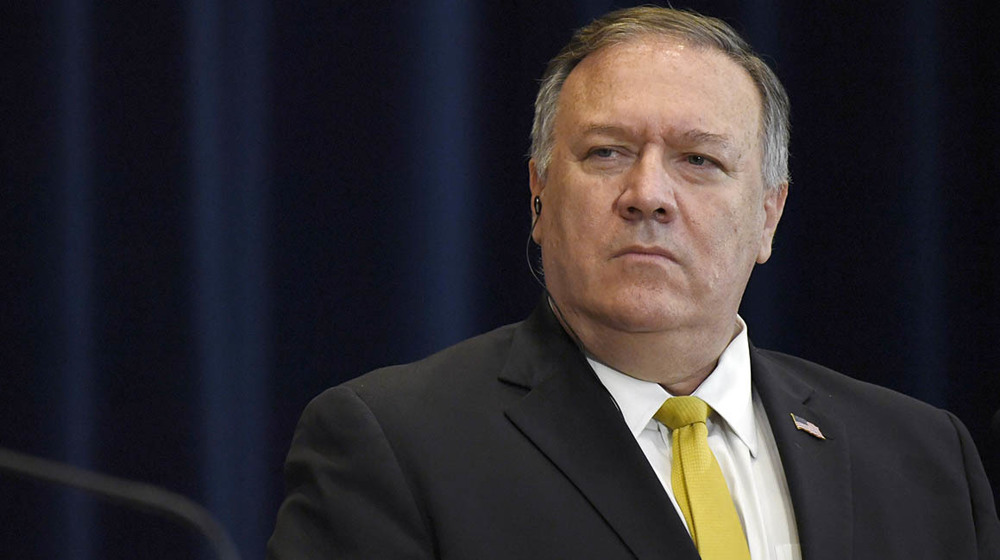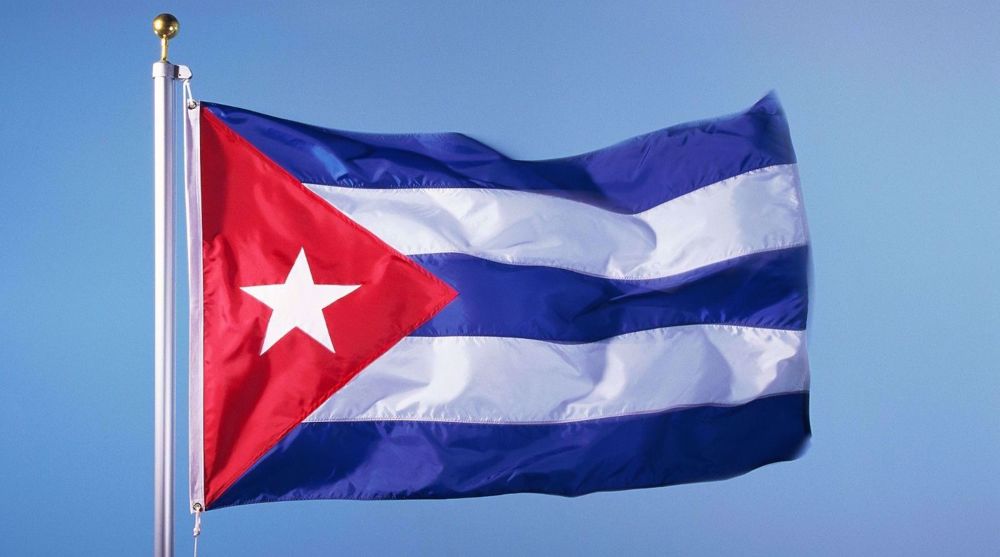Cuba raps as ‘political opportunism’ US return of Havana to ‘terror sponsors’ list
Cuba’s Foreign Minister Bruno Rodríguez has condemned the US’ “hypocritical and cynical” move to return Havana to its list of “state sponsors of terrorism”, describing it as political opportunism.
“We condemn the US-announced hypocritical and cynical designation of Cuba as a State sponsoring terrorism,” Rodríguez tweeted on Monday night.
“The US political opportunism is recognized by those who are honestly concerned about the scourge of terrorism and its victims,” he added.
We condemn the US announced hypocritical and cynical designation of #Cuba as a State sponsoring terrorism.
— Bruno Rodríguez P (@BrunoRguezP) January 11, 2021
The US political opportunism is recognized by those who are honestly concerned about the scourge of terrorism and its victims.
His comments came after the US administration announced it was returning Cuba to the US list of state sponsors of terrorism, a move that could complicate any efforts by the incoming Biden administration to revive Obama-era detente with Havana.
Just nine days before Republican President Donald Trump leaves office, Secretary of State Mike Pompeo said Monday Cuba was being blacklisted for “repeatedly providing support for acts of international terrorism” by harboring US fugitives as well as Colombian rebel leaders.
Pompeo also cited Communist-ruled Cuba’s security support for Venezuelan President Nicolas Maduro.
The US top diplomat urged the government of Raul Castro to end its support for what he called “international terrorism and subversion of US justice”.
Returning Cuba to the list is a further rollback of the detente that Democratic former President Barack Obama orchestrated between the old Cold War foes. Obama’s decision to formally remove Cuba from the terrorism list in 2015 was an important step toward restoring diplomatic ties that year.
He also became the first US president to visit the island in more than eight decades. Cuba was first added to the terrorism list by the Reagan administration in 1982.
Now it would require lengthy legal deliberations for Democratic President-elect Joe Biden to reverse the designation.
Trump has clamped down on Cuba since coming to power in 2017, tightening restrictions on US travel and remittances to Cuba, and imposing sanctions on shipments of Venezuelan oil to the island.
Trump’s hardline Cuba policy was popular among the large Cuban-American population in South Florida, helping him win the state in November though he lost the election to Biden, who was Obama’s vice president.
Biden said during the election campaign he would promptly reverse Trump policies on Cuba that “have inflicted harm on the Cuban people and done nothing to advance democracy and human rights.”
But Trump’s move could make it more difficult for Biden to resume rapprochement when he takes office.
“I denounce Sec of State Pompeo maneuvers to include Cuba in the list of States sponsoring terrorism to please the anti-Cuban minority in Florida,” the Cuban Foreign Minister had tweeted on Dec. 30 amid earlier speculation about the move.
Cuban President Díaz-Canel also said in a tweet on December 31 that Havana condemns “a unilateral, absurd, hypocritical and unjust maneuver of the US administration to include Cuba in their list of state sponsors of terrorism.”
“This administration protects terrorist groups acting against #Cuba,” he said.
Díaz-Canel also wrote that Havana “will constantly and rightfully denounce every mercenary and imperialist action against #Cuba.”
Trump has kept up a steady stream of 11th-hour sanctions announcements and other actions against targets including Cuba, Venezuela and Iran, and Biden aides have said some appear designed to tie his hands when he is sworn in on Jan. 20.
“We’ve taken note of these last-minute maneuvers,” a Biden official said. “The transition team is reviewing each one.”
Democratic Senator Patrick Leahy, a staunch supporter of Obama’s rapprochement, condemned Pompeo for a “blatantly politicized designation,” saying “domestic terrorism in the United States poses a far greater threat to Americans.”
The designation carries a prohibition on US economic aid, a ban on US arms exports, controls on “dual-use” items with military and civilian applications, and a requirement that the United States oppose loans to Cuba by international financial institutions such as the World Bank and the International Monetary Fund.
But many of those restrictions are already in place - or have even been tightened by Trump - and a decades-old US economic embargo remains and can only be lifted by Congress.
VIDEO | Former FBI agent criticizes US Congress for 'outright corruption'
IRGC chief urges Muslim countries to cut aid routes to Israel
'New chapter in cooperation': Iran, Venezuela sign new MoUs
Jordan sentences former lawmaker for supporting Palestinian resistance
Basij volunteer forces hold massive drills in southwestern Iran
Israeli war criminals 'not welcome', US city says after ICC ruling
US vetoing of Gaza ceasefire resolution ‘disgraceful’: Iran’s UN envoy
VIDEO | IAEA adopts anti-Iran resolution tabled by E3













 This makes it easy to access the Press TV website
This makes it easy to access the Press TV website